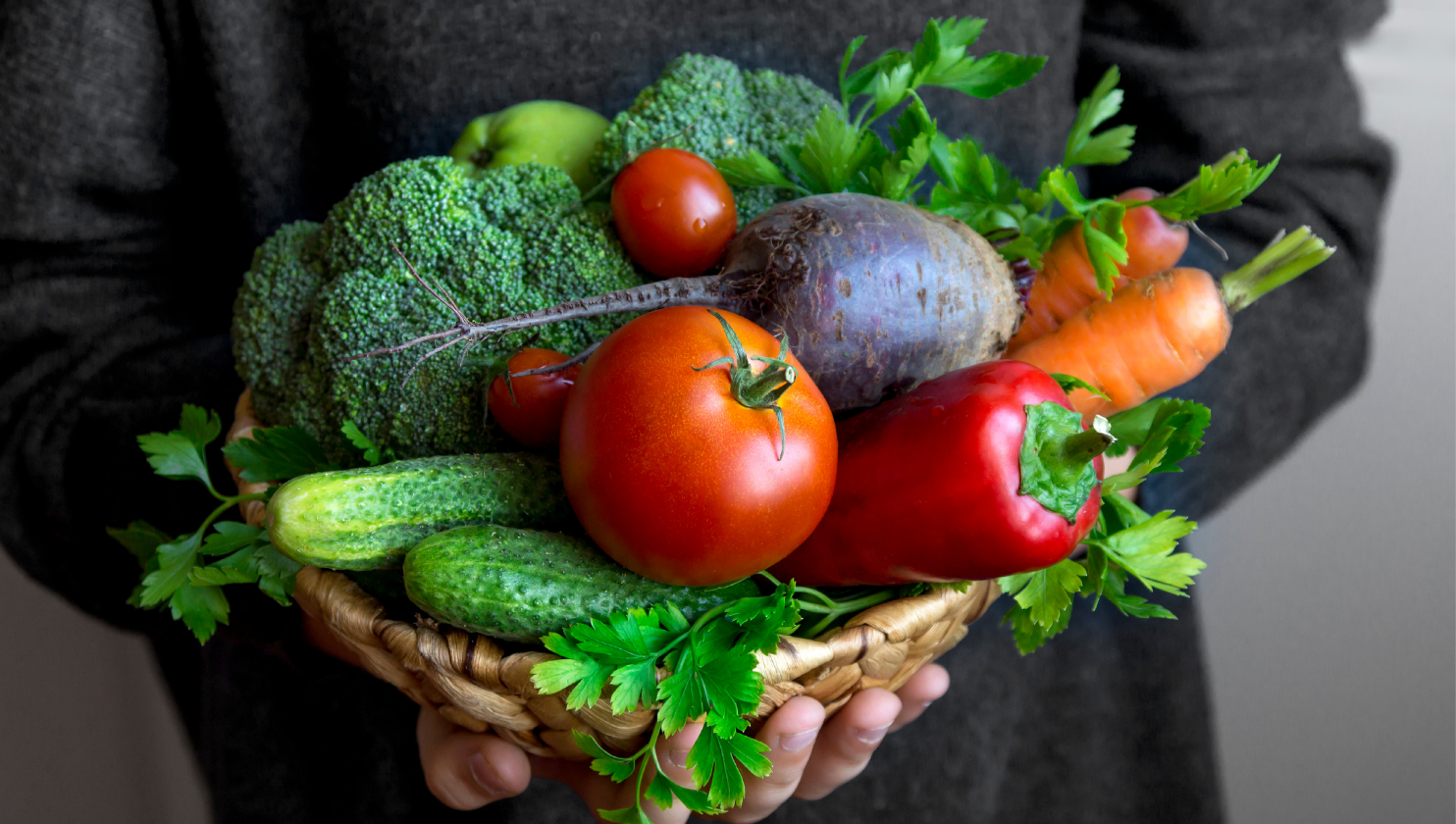We all know gardening can have huge health benefits – both physical and mental – and growing your own organic fruit and veg is no different.
Here, our Wellness and Behaviour Change Coach, Roger Saxby, reveals some of his own experiences – and how it could help you too:
Seeking inspiration to write this article, I instinctively found myself wandering outside to my back garden and was instantly snapped out of my ruminating thoughts when I saw the tomatoes growing up our garden fence. I was shocked at how fast they’d ripened in the sun and it immediately led me on a sensory, nature-based, mindful experience.
I began by looking at them in more detail, before touching them and engaging my sense of smell. That inevitably led to me tasting them too and after a few minutes I’d picked a colander full.
The whole practice got me imagining how I would make the most of them and the possibilities seemed endless… I could make a salad that night or a soup or even a pasta sauce at the very least the following day. Within a short period of time, I had come out of my overactive mind and come into a sensory body-felt experience of being outside and I now felt more relaxed and motivated.
I merely share this story to help highlight the wellbeing experience replicated by countless individuals, families and communities across the world who are growing fruit and vegetables for themselves or their wider community.
It may be anything from growing a single tomato or salad plant on a window ledge or the balcony of a flat, to the more spacious environments of gardens and allotments that require greater effort, but bring the possibilities of growing a range of diverse edible plants in an outdoor, natural setting.
Put simply, you step outside and something changes. Then if we add into the mix the sense of achievement and reward, having harvested our own food, it can leave us feeling relaxed, restored and revitalised.
It is well recognised, as described by the biophilia hypothesis, that as human beings we have an innate instinct to connect emotionally with nature.
And there is now a growing body of evidence-based research showing exposure to a range of natural environments can have mental health and wellbeing benefits, including reductions in stress, fatigue, anxiety and depression.
We know that mental illness can lead to isolation and social withdrawal, yet conversely, time in nature could improve social functioning and social inclusion. This can be achieved through growing our own food, whether that be with our family or within a community allotment where we can share our experiences and ideas.
Meanwhile, by eating a diverse range of plant-based foods, we are contributing to a healthy gut microbiome and therefore improving our immunity. Not to mention the potential for reducing our monthly food costs if we have a supply of our own veg through the growing season!
Growing our own vegetables can be applied to the ‘Five Ways to Wellbeing’, identified by The New Economics Foundation as being daily routines to enhance our wellbeing:
- Connect – Gardening and growing our own vegetables offers a real opportunity to create social interaction and connection with other people and create relationships, whether that be with our family or other growers. This in turn could boost our mental health. We can develop a sense of belonging and self-worth and it gives us an opportunity to share positive experiences, whilst providing emotional support to others.
- Be Active – The health benefits of engaging in physical activity are well documented for mental wellbeing, leading to improvements in self-esteem, mood and quality of life, as well as a reduction in anxiety and depression. Depending on the size of your growing space , it can provide a real workout that may save on the cost of a gym membership!
- Take Notice – Being aware of the world around you, savouring the moment and noticing nature by connecting through our senses can give the opportunity to be present and practice mindfulness. Our senses are heightened outside as we take in the sights, smells, sounds and contact of the natural world.
- Keep Learning – Growing our own vegetables is invariably a learning experience and provides the opportunity to learn new skills and knowledge, both about what we are growing and cooking and about the natural world in general, as each year brings different challenges and rewards.
- Give – Take part in community life, do something for a friend, do something for nature. Research suggests that acts of kindness by volunteering, joining a community garden or helping a friend or stranger can help improve mental wellbeing. It can create positive feelings and a sense of reward, purpose and self-worth through social cooperation.
The evidence is overwhelmingly in support of spending time outside to benefit overall mental health and these benefits can be replicated when we grow our own vegetables.
My own experience of growing our own vegetables as a family has not always been easy, as weather and availability of time has invariably influenced the outcome of the produce as well as the presence of other plants that might be referred to as weeds! But what I do know is that during the first six months of lockdown in 2020, having access to a growing space was fundamental to our family’s mental wellbeing and our daughter’s education, for which I have much gratitude.
So, why not give it a go? My advice would be to start small and simple and choose plants that you like to eat, plus ones that grow quickly and easily like lettuces or radishes. Good luck!

